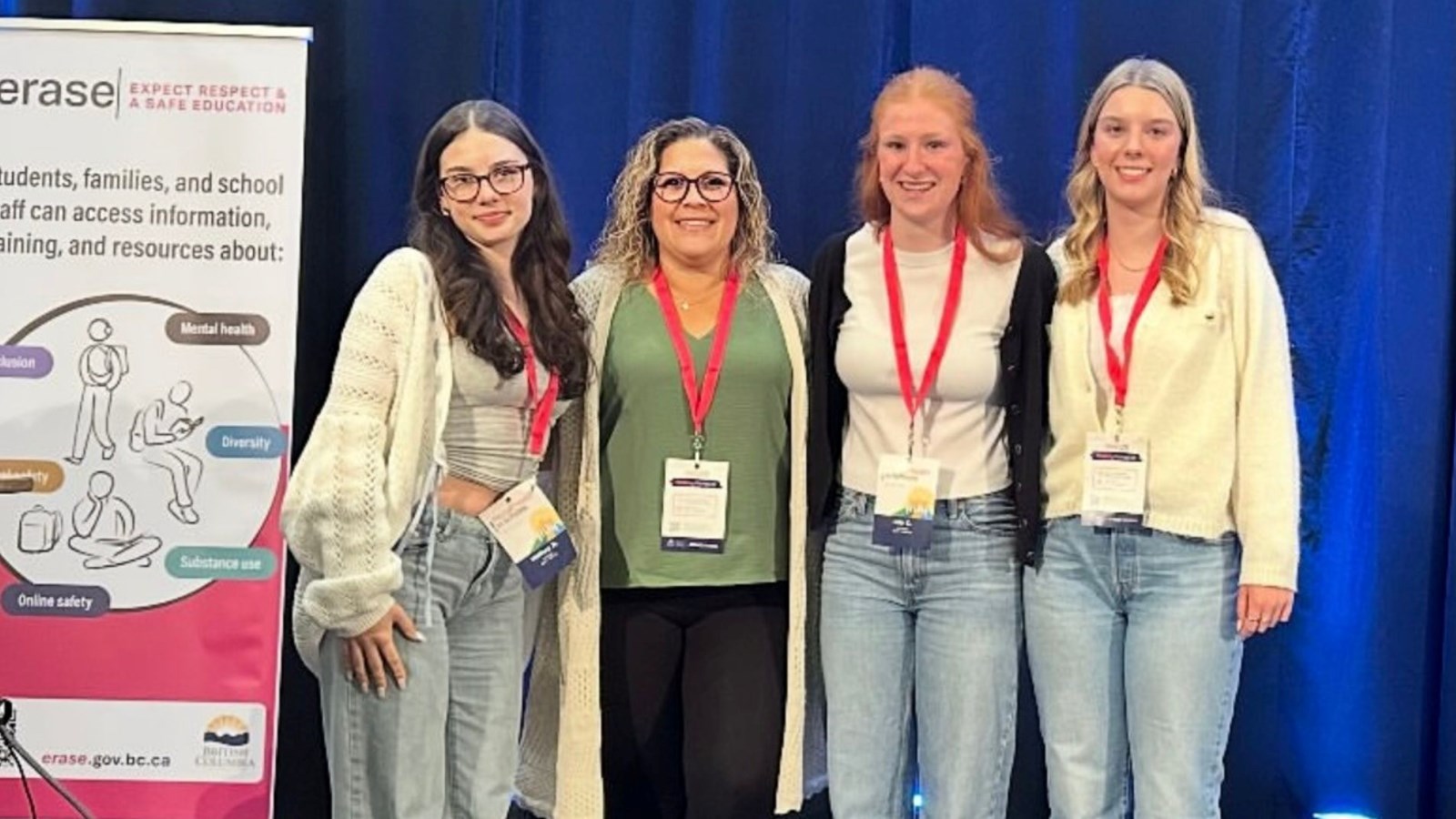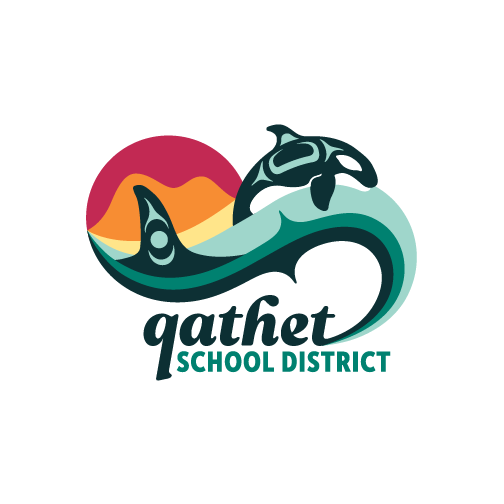Youth Advocacy and the Power of Student Voices in Promoting Mental Wellness

As part of Mental Health Awareness Week, Lily Gaudreau, Lily Carlos, and Mallory Brooks — three members of the Mental Health and Advocacy Group at Brooks Secondary — had the opportunity to represent their group and present at the Mental Health in Schools conference in Vancouver.
With guidance and support from their school counsellor, Elaine Maxwell, the group worked incredibly hard to create a presentation showcasing the important work they’re doing within their school community. They shared key learnings, highlighted the impact of their initiatives, and demonstrated how their efforts are making a difference both at Brooks and within the broader qathet community.
Watch this video, created and shared by the group during their presentation, which highlights the impact of their efforts:
Following the conference, we spoke with Lily G., Lily C., and Mallory about their experience. Here's what they had to say:
What was the most meaningful part of presenting at the conference for you?
Lily Carlos: “The adults truly listened and paid close attention to our presentation.”
Lily Gaudreau: “It was just an amazing opportunity. Only four schools were chosen to present at the conference, and being one of them felt incredible.”
Was there anything that surprised you about your experience?
Lily Gaudreau: “I didn’t expect to see so many faces in the audience. You don’t realize how intimidating it is to have all those eyes on you until you’re actually up there on stage.”
Mallory Brooks: “Being around a lot of important people like mental health professionals and educators who have had a big impact on schools was really cool. Talking to them and being able to present to them was an amazing experience. I mean, how often do you get to teach a teacher?”
What kind of feedback did you receive, and how did it make you feel?
Lily Carlos: “Both students and adults came up to us afterward to say how much they appreciated our ideas — especially the student survey we created to understand what kind of information students at Brooks needed in order to develop resources that truly helped. It was cool to know that one of our ideas was going to be used in different schools and communities.”
Mallory Brooks: “We also had a lot of people saying that they want to collaborate with us in the future. It was a proud moment, knowing that the work you're doing is making an impact and being recognized as useful.”
Lily Gaudreau: “Everyone’s feedback really did make us feel like everything we’re doing is making a huge difference. Even the small things all add up into something bigger.”
Did you get to connect with other mental health advocacy students?
Mallory Brooks: “Yes, we connected after the conference and shared personal experiences.”
Lily Carlos: “It was great being able to make connections with other students who are doing similar things.”
Lily Gaudreau: “We also got to connect with mental health professionals, like this man named Dan, who works for Foundry. He was amazing and interacted really well with the youth.”
Is there anything you learned from other presenters that you hope to bring to Brooks?
Lily Gaudreau: “There was one group who handed out stickers and pens with kind messages written on them, which we thought was a really great idea and could do something similar.”
Lily Carlos: “Another group had something they called ‘play dates’ in their school, where students got together for an hour to just play and let themselves be kids. We loved that idea, even if we’re not sure how to do it yet.”
What advice would you give to younger students who may have the opportunity to present in the future?
Mallory Brooks: “It’s worth it. It’s worth the grind. It’s worth all the hard work that it takes to put it together, but it’s so worth it.”
Lily Carlos: “Just say yes. It’s an opportunity to be in a room full of educated adults who truly want to hear what you have to say.”
Lily Gaudreau: “And just think of how proud you’ll be when it’s all over. It might feel scary or nerve-racking to think about presenting for those 10 minutes, but it’s worth it once it’s all done.”
We’re so proud of this group of mental health advocates — not only for stepping outside their comfort zones to represent Brooks Secondary and qathet School District with such professionalism, but also for the small, everyday actions that make a big difference in our school district community.
qathet School District provides counselling services facilitated by certified professionals employed within the district, as well as various tools and resources that can be accessed at anytime from anywhere. See below:
Within the district, students can benefit from Student Support Services such as School Psychology, Student Counselling Services, and support through an Integrated Child and Youth Team Clinical Counsellor. All of these services aim to offer social, emotional, behavioural, and personal support. Students may access counselling services through a referral to the school-based team or may self-refer at the high school.
Integrated Child and Youth Teams (ICY)
The ICY teams are part of B.C.'s strategy for mental health and substance use care. They bring services together in a multidisciplinary team setting, which makes it easier for children and youth to connect to the care they need, where and when they need it – at school and in the community.
Did you know qathet School District offers an anonymous reporting tool available online through ERASE (Expect Respect & a Safe Education)? The “erase | Report It” bullying resource enables students to conveniently and anonymously submit reports of bullying, incidents, or threats using a smartphone or computer, choosing when and where they feel safe to do so.
The 9-8-8 Suicide Crisis Helpline is a new service available 24/7/365 to help Canadians when they need it most. The service, accessible via call or text to 9-8-8, offers trauma-informed and culturally affirming support to anyone who is thinking of suicide or who is worried about someone they know.
Foundry Centre is Opening in the qathet Region
Foundry is a province-wide network of integrated health and wellness services for people ages 12-24 with a mission to support young people in living a good life.
A Mental Health & Wellness App by the Tla’amin Nation in partnership with Checking In called ʔəms nəm (the way we are). “ʔəms nəm is over a year in the making and was designed by a community-driven working group of Tla’amin Elders, youth, and health and education staff. It features Elder stories, cultural teachings, ʔayʔaǰuθəm language lessons, traditional songs, and land-integrated learning.”
Download on the App Store here.
Download on Google Play here.



